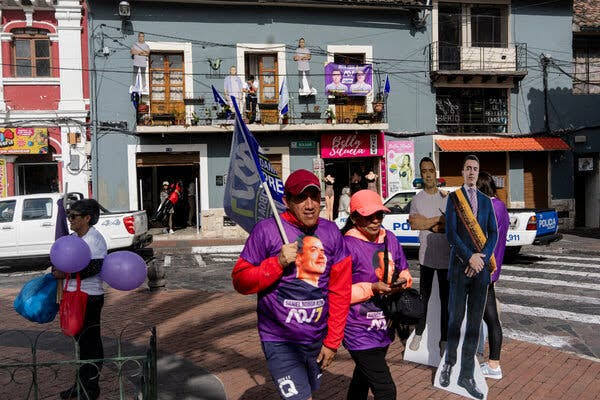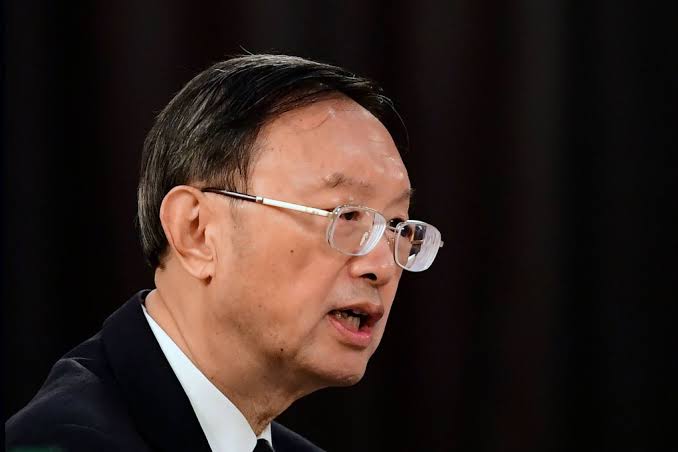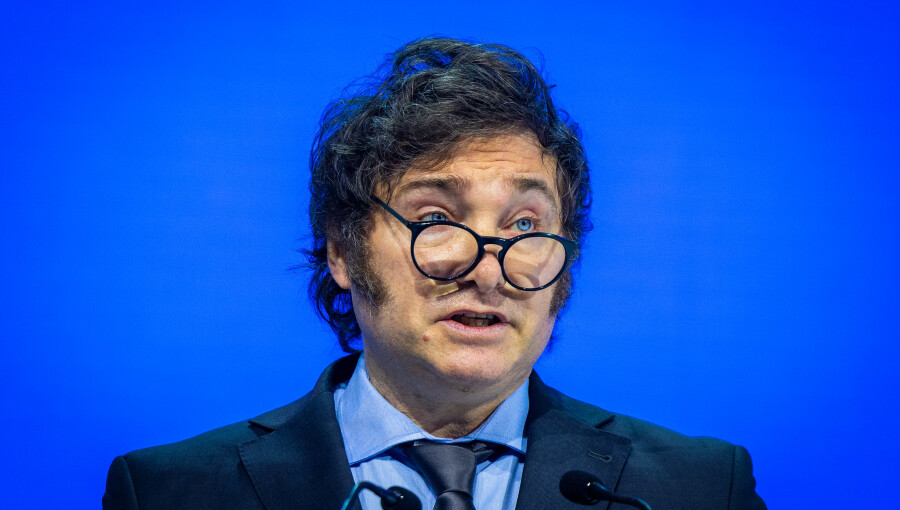Voters in Ecuador are preparing to select their next president in an election heavily influenced by the nation’s ongoing security challenges and economic difficulties.
Polling stations opened at 7 AM local time (12:00 GMT) on Sunday and will remain open for 10 hours.
Fifteen candidates are vying for the position against the hard-right incumbent, President Daniel Noboa, a 37-year-old heir to a banana fortune who took office just 14 months ago. His main opponent is Luisa Gonzalez, a 47-year-old leftist legislator and former protégé of ex-President Rafael Correa.
To surpass Noboa, who is leading in the polls due to his stringent crime-fighting policies, Gonzalez will need to significantly exceed expectations set by pre-election surveys.
Should no candidate secure 50 percent of the votes, or 40 percent with a 10-point margin over the closest competitor, a second-round runoff will take place on April 13.
Ecuador is eager for continued change.
The campaigns have primarily addressed issues related to the declining economy and violent conflicts among drug cartels, which have transformed Ecuador from one of the safest nations into one of the most perilous.
Noboa, who was first elected in 2023 to complete his predecessor’s term, asserts that his military deployment in urban areas and prisons has resulted in a 15 percent decrease in violent deaths, a significant reduction in prison violence, and the apprehension of key gang leaders.
“Today, Ecuador has transformed and seeks to continue this progress; it aims to solidify its victories,” Noboa stated during a closing campaign rally in Quito on Thursday. “This Sunday, reclaim your ability to dream.”
Read more: What to Know About Ecuador’s Presidential Election
However, the president’s opponents argue that more action is necessary to combat drug-related crime that has plagued Ecuador in recent years.
Gonzalez has proposed responding to crime through military and police operations, targeting allegedly corrupt judges and prosecutors, and implementing a social spending initiative in the most violent regions.
“We cannot discuss controlling violence without considering social justice and the creation of a peaceful Ecuador, not one defined by conflict,” Gonzalez remarked. “We are advancing toward this transformation together with each of you … we will save ourselves collectively.”
Described as the “worst crisis in half a century,” Ecuador faces escalating violence as rival gangs vie for control over cocaine trafficking routes.
During his initial term, Noboa declared a state of emergency, mobilized the military nationwide, and acquired extraordinary executive powers to address the violence.
Human rights organizations contend that Noboa’s aggressive military strategy has resulted in abuses, including the tragic deaths of four boys whose charred remains were discovered near a military base.
Nevertheless, analysts suggest that Noboa may have an advantage, as increasing cartel violence and unprecedented homicide rates continue to bolster support for strong leadership.
“Our research indicates that a majority of voters favor a form of dictatorship; they desire an iron fist, regardless of the underlying ideology,” analyst Omar Maluk informed Al Jazeera.
A desire persists for a strong leader who exhibits no signs of vulnerability or empathy, despite the fact that such approaches have largely proven ineffective thus far. This past January, Ecuador recorded a staggering 700 homicides in just one month.
The ongoing security crisis has adversely affected the economy, which likely slipped into recession last year.
Noboa has had to seek assistance from the International Monetary Fund to establish a $4 billion fiscal reserve.
Gonzalez, addressing concerns about potentially abandoning the IMF agreement if she wins, stated on Saturday that the United Nations agency is “welcome” to provide support, provided it does not impose policies detrimental to working families.





